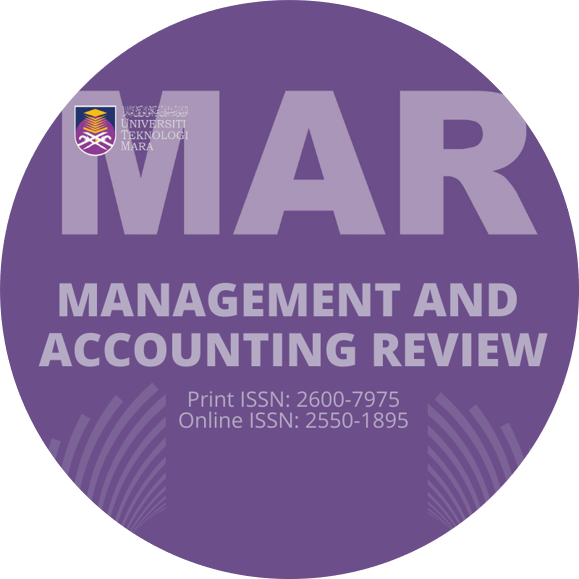Volume 23 No. 3, December 2024
MANAGEMENT AND ACCOUNTING REVIEW, VOLUME 23 NO. 3, DECEMBER 2024
Understanding Fraud Detection with the Heptagon Fraud Model and Income Tax Moderation: Evidence from Indonesia
Rachel Jodyan, Timothy Marvel Winowod♣ and Levana Dhia Prawati
School of Accounting, Bina Nusantara University, Jakarta, Indonesia
ABSTRACT
According to the ACFE Occupational Fraud (2022), manufacturing businesses had 194 potential cases of fraud and Indonesia had more than 239 (ACFE, 2019). This prompted studies that aimed to gather empirical data to investigate the possibility if tax incentives have an impact on Fraudulent Financial Reporting (FFR) in Indonesian public manufacturing firms. Only 291 of the 53 firms' data from the six-year period (2017–2022) were ultimately used. This research used the Heptagon Fraud Model namely Incentive/Pressure, Opportunity, Attitude/Rationalization, Capability, Arrogance, Ignorance and Greed as the independent variable and indicators related to tax using Income Tax Rate to measure the role of the moderating variable. SPSS research results revealed that Incentive/Pressure and Arrogance had positive influence on detecting FFR whereas Ignorance, Opportunity, Attitude/Rationalization, Capability, and Greed had a negative impact on detecting Fraudulent Financial Reporting. In addition, Income Tax Rate had a strong impact on Incentive, Capability and Greed in influencing FFR. This research explained the phenomenon of FFR and how it could benefit regulators, management, and various stakeholders in FFR detection. Accordingly, this study contributes to previous studies in the income tax rate context and adds to its puzzle by providing wider indicators on the fraud model.
Keywords: Fraud, Heptagon Fraud Model, Fraudulent Financial Reporting, Tax Motives, Beneish M-score
♣ Corresponding Author: Timothy Marvel Winowod; Jl. K. H. Syahdan No. 9, Kemanggisan, Palmerah Jakarta 11480 Indonesia; Email: timothy.winowod@gmail.com; Tel:+628111030326
ARTICLE INFO
Article History:
Received: 04 January 2024
Accepted: 23 September 2024
Available online: 01 December 2024





